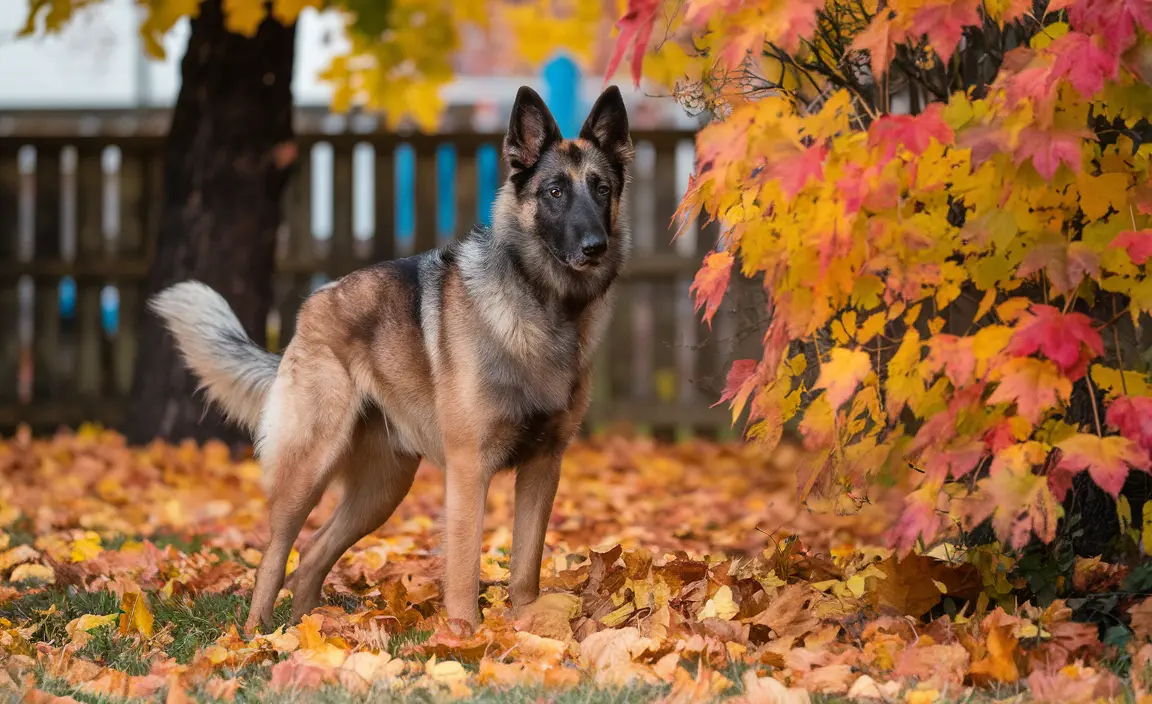Dutch Shepherds are a remarkable breed that combines intelligence, loyalty, and boundless energy into one extraordinary package. If you're considering adding a Dutch Shepherd to your family or simply want to understand these incredible dogs better, you're in for a fascinating journey into one of the most captivating working dog breeds.
These versatile canines are more than just pets – they're dedicated companions with a rich history and a personality that demands both respect and understanding. From their exceptional intelligence to their unwavering loyalty, Dutch Shepherds offer a unique blend of characteristics that make them stand out in the world of dog breeds.
Understanding the Dutch Shepherd Personality
Exceptional Intelligence and Trainability
Dutch Shepherds are widely recognized for their extraordinary intelligence. Unlike many breeds, these dogs don't just learn commands – they actively seek to understand and engage with their tasks. Their sharp minds make them exceptional working dogs, excelling in roles such as police work, search and rescue, and competitive dog sports.
Their cognitive abilities go far beyond simple obedience. Dutch Shepherds have an innate ability to problem-solve and adapt to complex situations. This means they require mental stimulation just as much as physical exercise. Puzzle toys, advanced training techniques, and interactive games are essential to keep their brilliant minds engaged and prevent boredom-related behavioral issues.
Loyalty and Family Dynamics
When it comes to loyalty, Dutch Shepherds are in a league of their own. They form incredibly strong bonds with their family members, showing a level of dedication that goes beyond typical canine attachment. This doesn't mean they're overly clingy – instead, they maintain a balanced approach of being attentive and respectful of personal space.
While naturally protective, Dutch Shepherds aren't aggressive. They have an intuitive sense of their family's safety, maintaining a watchful eye without becoming unnecessarily confrontational. This makes them excellent family companions who can seamlessly integrate into households with children and other pets when properly socialized.
Exercise and Mental Stimulation Needs
Physical and Cognitive Requirements
Dutch Shepherds are high-energy dogs that require substantial daily exercise. A simple walk around the block won't suffice for these athletic canines. They thrive on activities that challenge both their body and mind – think long runs, agility training, herding exercises, and interactive play sessions.
Without adequate physical and mental stimulation, Dutch Shepherds can develop destructive behaviors. Their herding instincts and high intelligence mean they need consistent engagement. Prospective owners should be prepared to invest significant time in training, exercise, and interactive play.
Training Approaches
Training a Dutch Shepherd requires patience, consistency, and a positive reinforcement approach. They respond exceptionally well to clear, structured training methods that challenge their intellect. Their independent nature means they appreciate handlers who can provide firm yet respectful guidance.
Grooming and Care Considerations
Shedding and Maintenance
Dutch Shepherds typically have a medium to heavy shedding coat that requires regular maintenance. Depending on their specific coat type – which can be short, long, or rough – grooming needs will vary. Weekly brushing is typically recommended to manage shedding and maintain coat health.
Frequently Asked Questions
What is the typical personality and temperament of a Dutch Shepherd?
Dutch Shepherds are highly intelligent, loyal, and energetic dogs with a strong work ethic. They are affectionate with family, protective without being aggressive, and thrive on mental and physical challenges.
How much exercise and mental stimulation does a Dutch Shepherd need daily?
These dogs require at least 1-2 hours of vigorous exercise and substantial mental stimulation daily. This can include long walks, running, agility training, puzzle toys, and interactive play sessions.
Are Dutch Shepherds good family dogs and how do they behave around children and other pets?
When properly socialized, Dutch Shepherds can be excellent family dogs. They are generally friendly with children and can coexist well with other pets. Early training and consistent boundaries are key to successful integration.
What are the common behavioral traits and training challenges of Dutch Shepherds?
Their high intelligence and independent nature can make training both rewarding and challenging. They require consistent, positive training methods and are prone to developing problem behaviors if not sufficiently mentally and physically stimulated.
How should I care for the grooming and shedding needs of a Dutch Shepherd?
Regular weekly brushing is essential to manage shedding. The specific grooming needs depend on the coat type (short, long, or rough), but consistent maintenance will help keep their coat healthy and reduce loose hair.






